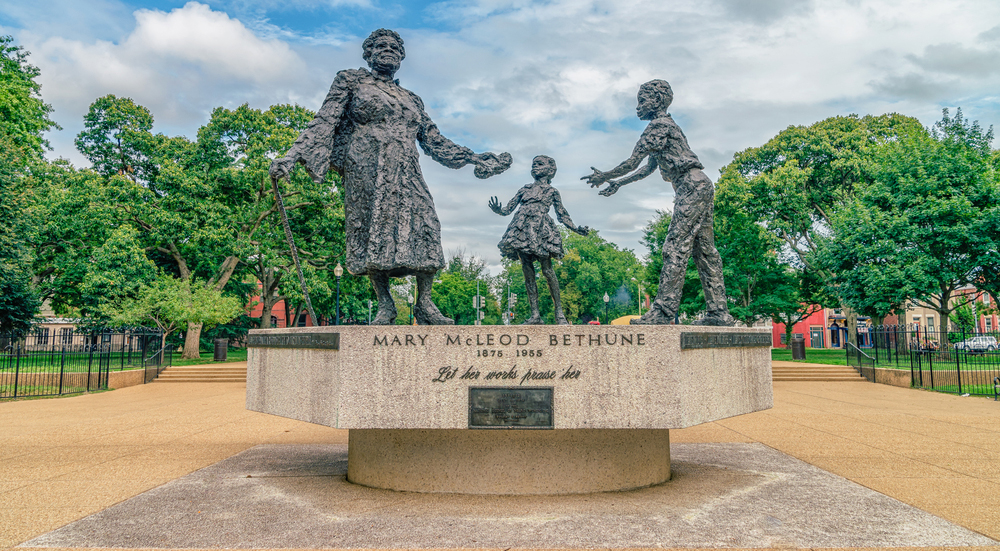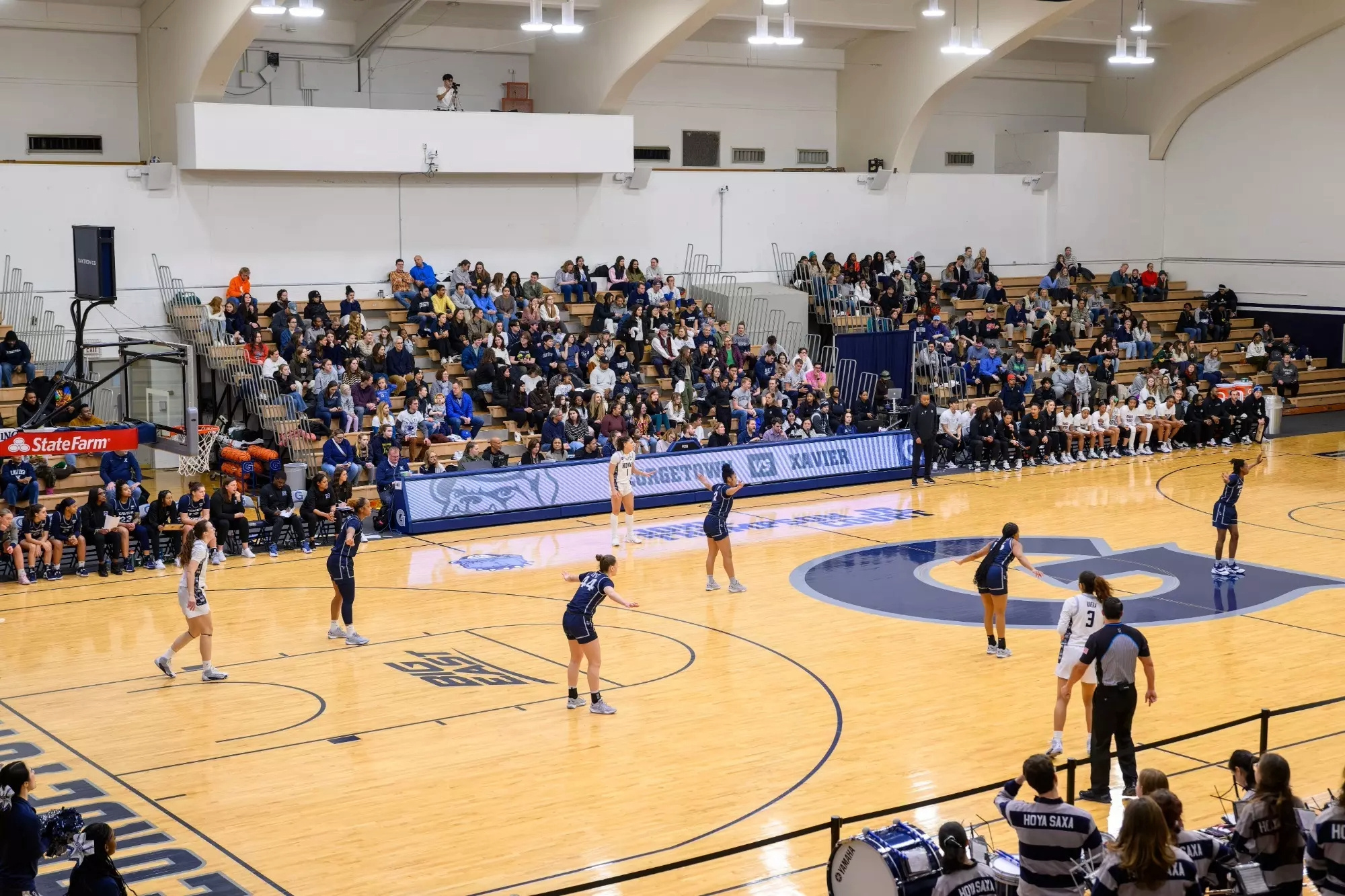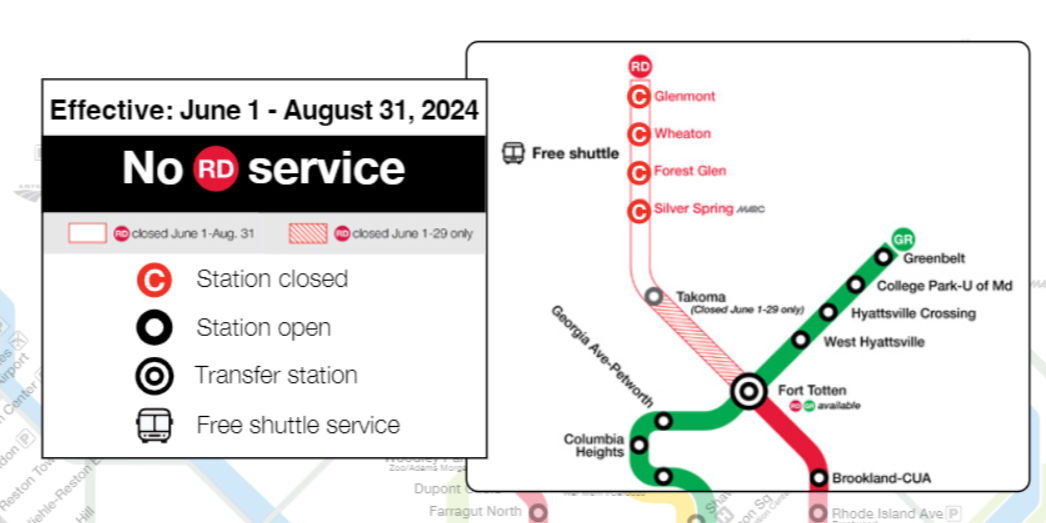This blog references DC Circulator. Please note, as of 1/1/2025, DC Circulator no longer provides bus service.
Every year, February is celebrated as Black History Month to recognize both the achievements and central role of African Americans in US history. Initially coined "Negro History Week" in 1926 by the notable black historian Carter G. Woodson, the week was founded to raise awareness about African Americans' contributions to civilization. Decades later, Woodson's legacy remains stronger than ever. In fact, the celebration expanded to a month during its 50th anniversary in 1976 to become the first-ever African American History Month. Since then, each US president has designated February as Black History Month and endorsed a specific theme. From our nation's first African American president, Barack Obama, to one of the greatest leaders of the Civil Rights Movement, Dr. Martin Luther King, Jr., we thank you and honor you for your contributions.
goDCgo has outlined the top 10 sites to see in our nation's capital in honor of Black History Month and the best ways to get there:
- A. Philip Randolph Monument
- African American Civil War Memorial Museum
- Carter G. Woodson Home & Park
- Frederick Douglass National Historic Site
- Martin Luther King, Jr. Memorial
- Mary Mcleod Bethune House
- Mary Mcleod Bethune Memorial
- Mayor Marion Barry Statue
- National Museum for African American History & Culture
- Sojourner Truth Bust
A. Philip Randolph Monument
50 Massachusetts Avenue NE, Washington, DC 20002
Hidden in plain sight is the A. Philip Randolph statue inside Union Station. Civil rights leader A. Phillip Randolph served as president of the Brotherhood of Sleeping Car Porters -- one of the first labor unions led by African Americans -- and lobbied President Franklin Roosevelt for fair employment practices. Randolph was also one of the principal organizers of the legendary 1963 March on Washington. His monument can be viewed in Union Station outside of the Starbucks on the Claytor Concourse.
- Capital Bikeshare: Dock your bike at Columbus Circle/Union Station.
- DC Circulator: Take the Georgetown-Union Station route and get off at Massachusetts Ave and First St NE.
- Metro: Take the Red Line to Union Station.
- DC Streetcar: Ride the streetcar and get off at Union Station.
African American Civil War Memorial Museum
1925 Vermont Avenue NW, Washington, DC 20001
Located in DC's Shaw neighborhood, the African American Civil War Memorial Museum recognizes the once ignored service of the United States Colored Troops and seeks to provide a quality learning experience for its visitors by "preserving and telling the stories of the United States Colored Troops involvement in the American Civil War.”
- Capital Bikeshare: Dock your bike at 10th & U St NW.
- Metro: Take the Green/Yellow Line to U St/African-American Civil War Memorial/Cardozo Station.
Carter G. Woodson Home and Park
1538 9th Street NW, Washington, DC 20001
Nationally recognized as “the Father of Black History,” Carter G. Woodson was one of the first scholars to study African American history. He dedicated himself and his organization to informing the American public about the contributions of black Americans in the formation of the country, history, and culture. Located in Shaw, the Woodson Home is open to the public for tours on Thursdays, Fridays, and Saturdays.
- Capital Bikeshare: Dock your bike at 8th and O St NW.
- Metro: Take the Green/Yellow Line to Shaw/Howard University Station.
Frederick Douglass National Historic Site
1411 W Street SE, Washington, DC 20020
Frederick Douglass escaped slavery to become the prominent abolitionist of his day. Fun fact -- he's also the most photographed American of the nineteenth century! Douglass's home in Anacostia, Cedar Hill has been restored to its 1895 original appearance with objects belonging to him and many of his family members. The only way to get inside Frederick Douglass's historic house is to take a guided tour which lasts about 30 minutes.
- Capital Bikeshare: Dock your bike at Pleasant St & MLK Ave SE.
- Metro: Take the Green/Yellow Line to Anacostia Station.
Martin Luther King, Jr. Memorial
1964 Independence Avenue SW, Washington, DC 20003
A religious minister and activist, Dr. Martin Luther King, Jr. is most widely known for his leading role in the Civil Rights Movement of the 1950s and 60s. He was also a tireless advocate for the nation's working class and the oppressed around the world which is why his legacy continues to inspire Americans today. Honoring an American hero, the MLK Memorial features a 30-foot statue of the icon flanked by two walls filled with quotations from his many speeches. While open 24 hours a day, the early evening and morning hours are beautiful and tranquil times to visit.
- Capital Bikeshare: Dock your bike at Ohio Dr & West Basin Dr SW/MLK & FDR Memorials.
- DC Circulator: Take the National Mall route and get off at West Basin Dr near Independence Ave SW.
- Metro: Take the Blue/Orange/Silver Line to Smithsonian Station.
Mary Mcleod Bethune House
1318 Vermont Avenue NW, Washington, DC 20005
As an educator and champion for racial and gender equality, Mary Mcleod Bethune founded the National Council of Negro Women (NCNW) right in her Logan Circle row house. Under her leadership, the NCNW grew to over 850,000 members. Today, the over 4 million members of the NCNW continue the work begun by Bethune. Park rangers guide interpretive tours of her historic house on Thursdays, Fridays, and Saturdays.
- Capital Bikeshare: Dock your bike at 14th & Rhode Island Ave NW.
- Metro: Take the Green/Yellow Line to Mt Vernon Square Station.
Mary Mcleod Bethune Memorial
1301 E Capitol St SE, Washington, DC 20003 (Lincoln Park)
Located on Capitol Hill in Lincoln Park, the Mary McLeod Bethune statue is the first monument to honor a black woman in a public park in the District of Columbia and was funded by her own National Council of Negro Women (NCNW).
- Capital Bikeshare: Dock your bike at Lincoln Park/13th & East Capitol St NE.
- DC Circulator: Take the Congress Heights-Union Station route and get off at 8th St & East Capitol St NE.
- Metro: Take the Blue/Orange/Silver Line to Eastern Market Station.
Mayor Marion Barry Statue
1350 Pennsylvania Avenue NW, Washington, DC 20004
Civil rights activist, 15-year DC City Council Member, and four-term Mayor of Washington, DC, Marion Barry had a huge impact on this city, especially as the voice for urban blacks and champion for the poor. For many, he is considered the most influential and savvy local politician of his generation and DC's "Mayor for Life." Designed by Maryland-based sculptor Steven Weitzman, the 8-foot-tall, bronze statue of Mayor Barry can be found at the northeast corner of the John A. Wilson Building, near the intersection of 13½ Street NW and Pennsylvania Ave NW.
- Capital Bikeshare: Dock your bike at 14th & D St NW/Ronald Reagan Building.
- Metro: Take the Blue/Orange/Silver Line to Federal Triangle Station.
National Museum of African American History and Culture
1400 Constitution Avenue NW, Washington, DC 20560
Opened in 2016, the National Museum for African American History and Culture is the "only national museum devoted exclusively to the documentation of African American life, history, and culture." Currently, the museum is featuring an exhibit on the African American experience during World War I. Admission is FREE but passes may be required.
- Capital Bikeshare: Dock your bike at 15th St & Constitution Ave NW.
- DC Circulator: Take the National Mall route and get off at 15th St and Madison Dr NW.
- Metro: Take the Blue/Orange/Silver Line to Smithsonian Station.
Sojourner Truth Bust
First Street SE, Washington, DC 20004 (US Capitol)
The woman we know as Sojourner Truth was born Isabella Baumfree in 1797. She later changed her name to Sojourner Truth when she started traveling and preaching about abolition and women's rights. Truth is most known for her famous speech, "Ain't I a Woman?," which put a spotlight on the contrast between the treatment of white and black women and supported the rising feminist movement. Unveiled on April 28, 2009, Sojourner Truth's bronze bust is the first sculpture to honor an African American woman in the United States Capitol.
- Capital Bikeshare: Dock your bike at 1st & D St SE.
- DC Circulator: Take the National Mall route and get off at 3rd St near Madison Dr NW.
- Metro: Take the Blue/Orange/Silver Line to Capitol South Station.






.jpg)

